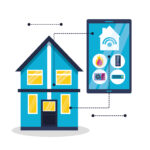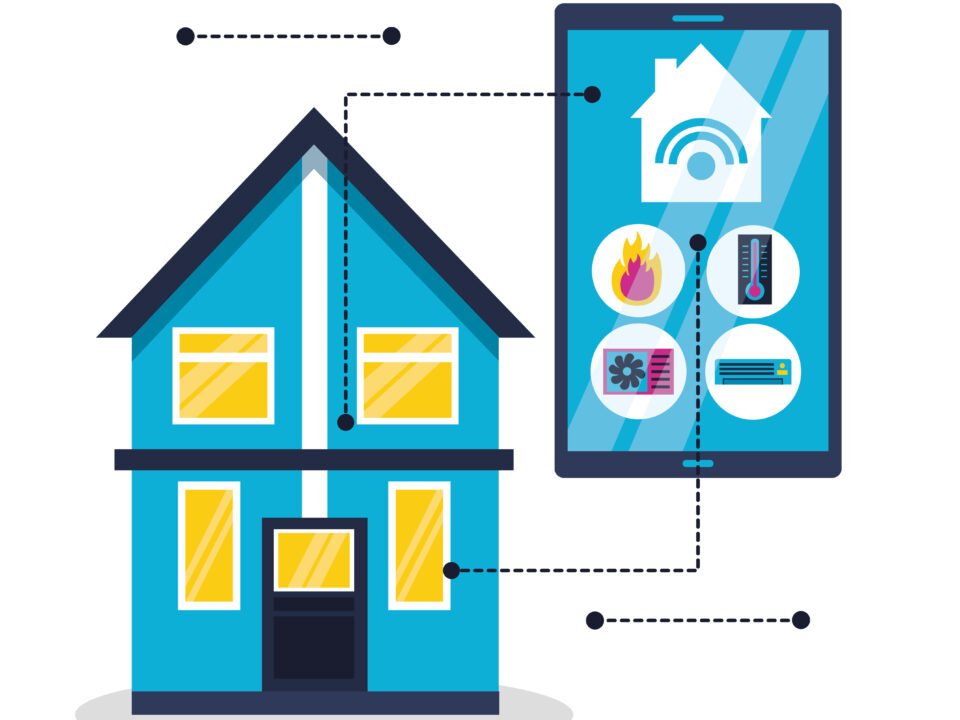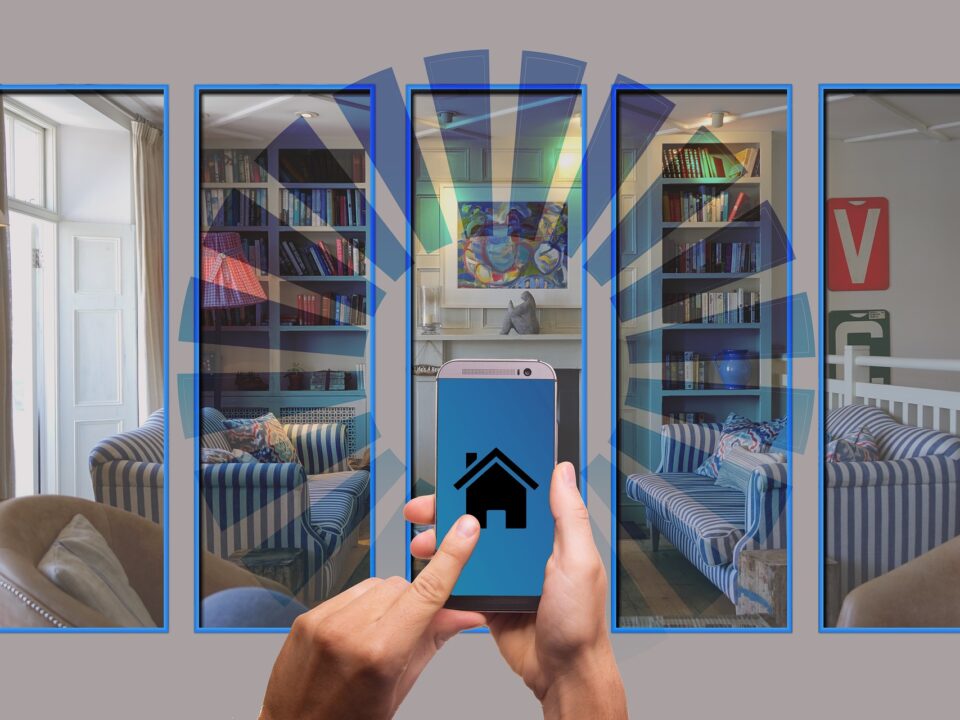
Automatic Tint: The Future of Window Control with SmartGlass Ontario
août 10, 2024
Discover the Benefits of Window Film for Offices and Homes
octobre 7, 2024Introduction to Smart Glass
Imagine a world where your windows adjust their tint automatically to block out the harsh midday sun, where your car’s windshield darkens on command to reduce glare, and where office partitions turn opaque for privacy at the flip of a switch. This isn’t science fiction—this is the world of smart glass.
What is Smart Glass?
Smart glass is a type of glazing that alters its properties—such as light transmission and thermal insulation—based on external stimuli. This revolutionary material is transforming the way we interact with our environments, offering an exciting glimpse into the future of architecture, automotive design, and beyond.
The Evolution of Glass Technology
Glass has come a long way from being a fragile material used merely for windows and mirrors. Over the centuries, innovations have enhanced its strength, clarity, and functionality. Smart glass represents the next leap in this evolution, combining traditional glass with cutting-edge technology to create surfaces that are not only transparent but also intelligent.
Why Smart Glass is a Game Changer
Smart glass is more than just a fancy material—it’s a technology that promises to revolutionize energy efficiency, privacy, and user comfort. As the world grapples with environmental challenges and the need for smarter, more sustainable solutions, smart glass stands out as a key player in this transformation.
Types of Smart Glass
There isn’t just one kind of smart glass; this technology comes in several forms, each with unique properties and applications. Here’s a closer look:
Electrochromic Glass
Electrochromic Glass changes its tint when an electric current is applied. It’s commonly used in buildings and vehicles to control sunlight penetration, reducing the need for air conditioning and enhancing occupant comfort.
Thermochromic Glass
Thermochromic glass responds to temperature changes, automatically darkening as the temperature rises. This self-regulating feature makes it ideal for windows and skylights, helping to maintain a comfortable indoor environment.
Suspended Particle Device (SPD) Glass
SPD glass contains tiny particles suspended in a liquid. When electricity is applied, these particles align to allow light through, creating a clear glass. Without electricity, the particles are randomly oriented, blocking light and creating a darkened surface.
Liquid Crystal Glass
Liquid crystal glass switches between transparent and opaque states when electricity is applied. This type of smart glass is often used in conference rooms, bathrooms, and partitions where on-demand privacy is essential.
Photochromic Glass
Photochromic glass darkens in response to sunlight, similar to sunglasses that adjust their tint based on light exposure. This type of glass is less common but is sometimes used in eyewear and specialty applications.
How Smart Glass Works
The Science Behind Smart Glass
At its core, smart glass is a sophisticated material that interacts with its environment in a dynamic way. Whether it’s responding to electricity, heat, or light, the key lies in the materials embedded within the glass, which react to external stimuli to alter the glass’s properties.
Different Technologies Used in Smart Glass
From electrochromic to thermochromic and beyond, smart glass technologies vary widely. Each type employs different mechanisms—some rely on the movement of particles, others on changes in molecular structure. What they all share is the ability to provide adaptive control over light and heat.
Smart Glass in Everyday Applications
Smart glass is already making its way into our daily lives. In homes, it’s used in windows that reduce energy consumption by blocking excessive heat. In offices, it provides privacy without the need for blinds or curtains. In cars, it enhances safety and comfort by reducing glare and heat buildup.
Benefits of Smart Glass
Why is everyone so excited about smart glass? Here are some of the standout benefits:
Energy Efficiency
Smart glass helps reduce energy costs by controlling the amount of sunlight and heat that enters a building. By dynamically adjusting its properties, it minimizes the need for artificial lighting and air conditioning.
Privacy on Demand
One of the most attractive features of smart glass is its ability to switch from transparent to opaque at the push of a button, providing instant privacy in spaces where it’s needed.
Aesthetic Appeal
Smart glass offers sleek, modern aesthetics, with the added functionality of controlling light and heat. It eliminates the need for blinds and curtains, contributing to a cleaner, more streamlined look.
UV Protection
By blocking harmful UV rays, smart glass protects interior furnishings from fading and reduces the risk of skin damage for occupants, making it a healthier choice for homes and offices.
Noise Reduction
Smart glass can also provide sound insulation, making it a great choice for urban environments where noise pollution is a concern.
Applications of Smart Glass
Smart glass isn’t just a high-tech novelty—it’s a versatile material with a wide range of applications across different industries.
Smart Glass in Architecture
In modern architecture, smart glass is used in windows, skylights, and façades to enhance energy efficiency and occupant comfort. It’s also a popular choice for interior partitions in offices and homes.
Smart Glass in Automobiles
Automakers are increasingly incorporating smart glass in sunroofs, windows, and windshields to reduce glare, heat buildup, and energy consumption. It also adds a touch of luxury to vehicle interiors.
Smart Glass in Electronics
From smartphones to smartwatches, smart glass is being used to create more durable, adaptive screens that can adjust brightness and visibility based on ambient light conditions.
Smart Glass in Healthcare
Hospitals and healthcare facilities are utilizing smart glass for patient rooms and operating theaters, where privacy and light control are critical. It also helps in maintaining a sterile environment by eliminating the need for curtains.
Smart Glass in Retail
In retail settings, smart glass is used in storefronts and display cases to create eye-catching, dynamic presentations. It also allows for better control of lighting conditions within the store.
The Role of Smart Glass in Sustainable Building
As sustainability becomes a central concern in construction, smart glass is playing a pivotal role in creating greener buildings.
Reducing Carbon Footprint
By reducing the need for artificial lighting and climate control, smart glass helps lower a building’s carbon footprint, contributing to a more sustainable environment.
Enhancing Building Efficiency
Smart glass improves building efficiency by dynamically adjusting to external conditions, optimizing energy use throughout the day.
Integrating with Smart Building Systems
When integrated with smart building systems, smart glass can automatically adjust based on occupancy, time of day, or weather conditions, further enhancing energy efficiency and occupant comfort.
Challenges and Limitations
While smart glass offers many advantages, there are also challenges that need to be addressed.
Cost of Smart Glass Technology
One of the main barriers to widespread adoption is the cost. Smart glass is still relatively expensive compared to traditional glazing options, making it less accessible for some consumers.
Durability and Maintenance Issues
Smart glass requires regular maintenance to ensure its functionality over time. Durability can also be an issue, especially in harsh environments where the glass may be exposed to extreme conditions.
Technological Barriers
There are still some technological hurdles to overcome, particularly in enhancing the performance and reliability of smart glass across different applications.
Market Adoption and Consumer Awareness
Despite its benefits, smart glass is not yet widely known or adopted by the general public. Increasing consumer awareness and understanding of its potential could help drive market growth.
Future Trends in Smart Glass Technology
Looking ahead, the future of smart glass is bright, with exciting innovations on the horizon.
Innovations in Smart Glass Materials
Researchers are constantly developing new materials that can improve the performance and reduce the cost of smart glass. These innovations are likely to make smart glass more accessible and effective.
Integration with AI and IoT
As buildings and vehicles become smarter, there’s a growing trend toward integrating smart glass with AI and IoT systems. This allows for more precise control and automation, enhancing the overall user experience.
Expanding Market Applications
The potential applications of smart glass are expanding, with new uses being discovered in areas like wearable technology, aviation, and even space exploration.
Predictions for the Next Decade
In the next decade, smart glass is expected to become more commonplace in homes, offices, and vehicles. As technology advances and costs come down, it could become the standard for new construction and renovation projects.
Conclusion
Smart glass is more than just a technological novelty; it’s a transformative material that holds the potential to change the way we interact with our built environments. From energy efficiency and privacy to aesthetics and sustainability, the benefits of smart glass are clear. As research continues and the technology evolves, we can expect smart glass to play an increasingly important role in our daily lives.
FAQs
What is the lifespan of smart glass?
The lifespan of smart glass varies depending on the type and usage, but it generally lasts between 10 to 20 years with proper maintenance.
How to use smart glass in residential homes?
Yes, smart glass is becoming increasingly popular in residential settings, particularly for windows, skylights, and interior partitions.
How does smart glass affect energy bills?
Smart glass can significantly reduce energy bills by minimizing the need for artificial lighting and air conditioning, especially in buildings exposed to direct sunlight.
What are the safety concerns with smart glass?
Smart glass is generally safe, but like all glass, it can break under extreme conditions. However, it’s typically made from laminated glass, which is more durable and shatter-resistant.
How customizable is smart glass?
Smart glass is highly customizable in terms of size, shape, and functionality. It can be tailored to meet the specific needs of different applications, from homes and offices to vehicles and electronics.




